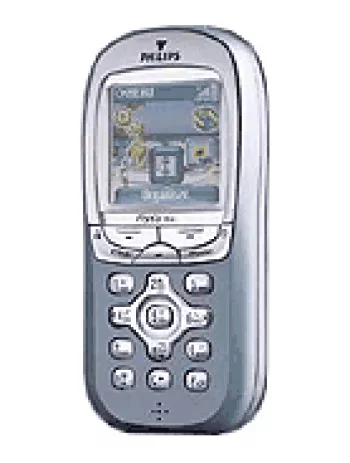
Introduction to Philips S880
The Philips S880 was announced in June 2006 as a feature phone aimed at consumers seeking basic mobile phone functionalities wrapped in a compact design. Although the device was eventually cancelled and never released to the market, its specifications indicate a straightforward and practical handset suitable for its time. Below is an in-depth analysis of the phone’s features and potential user experience.
Design and Build
The Philips S880 is compact with dimensions of 87.5 x 43.5 x 20.5 mm and weighs just 80 g. The device is designed to fit comfortably in the hand or pocket, making it highly portable. It supports a Mini-SIM and was planned to be available in three color variants: Silver Soul, Black Beat, and Hot Pink. The phone’s lightweight design would have appealed to users looking for simplicity over bulkier options.
Display
Equipped with a 1.7 inch CSTN display, the Philips S880 offered a resolution of 128 x 160 pixels. Although the screen size (9.1 cm2) and resolution are minimal by today's standards, for its era, it provided a satisfactory experience for navigating basic phone functions and viewing messages. The screen supports 65K colors, which is adequate for displaying images and simple graphics.
Camera Capabilities
The Philips S880 featured a single VGA camera, which, at 0.3 MP, falls significantly short of the capabilities found in modern smartphones. However, for 2006 standards, it served its purpose for taking quick snapshots. Video recording was also possible in SQCIF format, although the quality and resolution were limited.
Memory and Storage
Internally, the Philips S880 offered 128 MB of storage with no option for expansion via a card slot. This restricts the storage of multimedia and other data, making it more suitable for basic activities like storing contacts (via a built-in phonebook) and keeping call records (up to 30 recent calls). This level of storage was typical for phones focusing mainly on voice and text communication.
Network and Connectivity
The Philips S880 was designed to support GSM technology with 2G bands of GSM 900 and 1800. It included GPRS class 10, however, lacked advanced connectivity options like Bluetooth, positioning, or WiFi. This meant that connectivity was limited to basic telecommunication services without advanced data transfers or internet services, apart from standard WAP browsing.
Sound and Alerts
The device incorporated a loudspeaker and supported multiple alert types including vibration, downloadable polyphonic, and MP3 ringtones. However, it did not feature a 3.5mm headphone jack, which limited personal audio output to the device’s built-in speaker.
Battery Life and Performance
The Philips S880 was powered by a removable Li-Ion 720 mAh battery, promising standby time of up to 180 hours and talk time of up to 3 hours. While these figures are modest, they align with the phone's intended use as a basic communication device, providing enough battery life for typical daily use in the era it was designed for.
Software and Additional Features
As a feature phone, the Philips S880 ran on a simple, proprietary operating system designed to handle SMS, EMS, MMS, and email communication. The inclusion of basic games and a WAP browser indicates some level of leisure and connectivity functions rather than robust multimedia capabilities. It did not support Java applications, which limited the potential for additional software customization.
Conclusion
Although never released, the Philips S880 was emblematic of the shifting focus in mobile technology during the mid-2000s. Its design and feature set made it a suitable option for users who prioritized straightforward communication over the burgeoning demand for smartphone functionalities. The simplicity and compact nature of the device would have made it ideal for users looking for a reliable, no-frills phone solution. However, with technological advancements accelerating quickly during this period, devices like the Philips S880 quickly became overshadowed by more capable and feature-rich smartphones.
Key Features of Philips S880
- Compact and lightweight design with dimensions of 87.5 x 43.5 x 20.5 mm and weight of 80 g.
- CSTN display with 65K colors, making it suitable for basic visual needs.
- VGA main camera for basic photography.
- Internal memory of 128MB suitable for storing essential contacts and messages.
- Supports SMS, EMS, MMS, and Email messaging services.
- Removable Li-Ion 720 mAh battery providing up to 180 hours of standby time and up to 3 hours of talk time.
- Available in multiple color options: Silver Soul, Black Beat, and Hot Pink.
- Supports downloadable polyphonic and MP3 ringtones for customizable alerts.
Philips S880 Drawbacks
- Network technology limited to GSM only without EDGE support.
- Canceled status, never reached the market.
- Small display size of 1.7 inches with a low resolution of 128 x 160 pixels.
- No expandable memory slot; limited to 128MB internal storage.
- Basic VGA main camera with low-quality video recording (SQCIF).
- No selfie camera available.
- Lack of connectivity options: no WLAN, no Bluetooth, no GPS, and no radio.
- No 3.5mm headphone jack available.
- Limited 720 mAh battery capacity with a short talk time of up to 3 hours.
- No support for Java applications.

View Also
More Phones
All Rights Reserved +14266 Phones © Mobilawy 2025

























